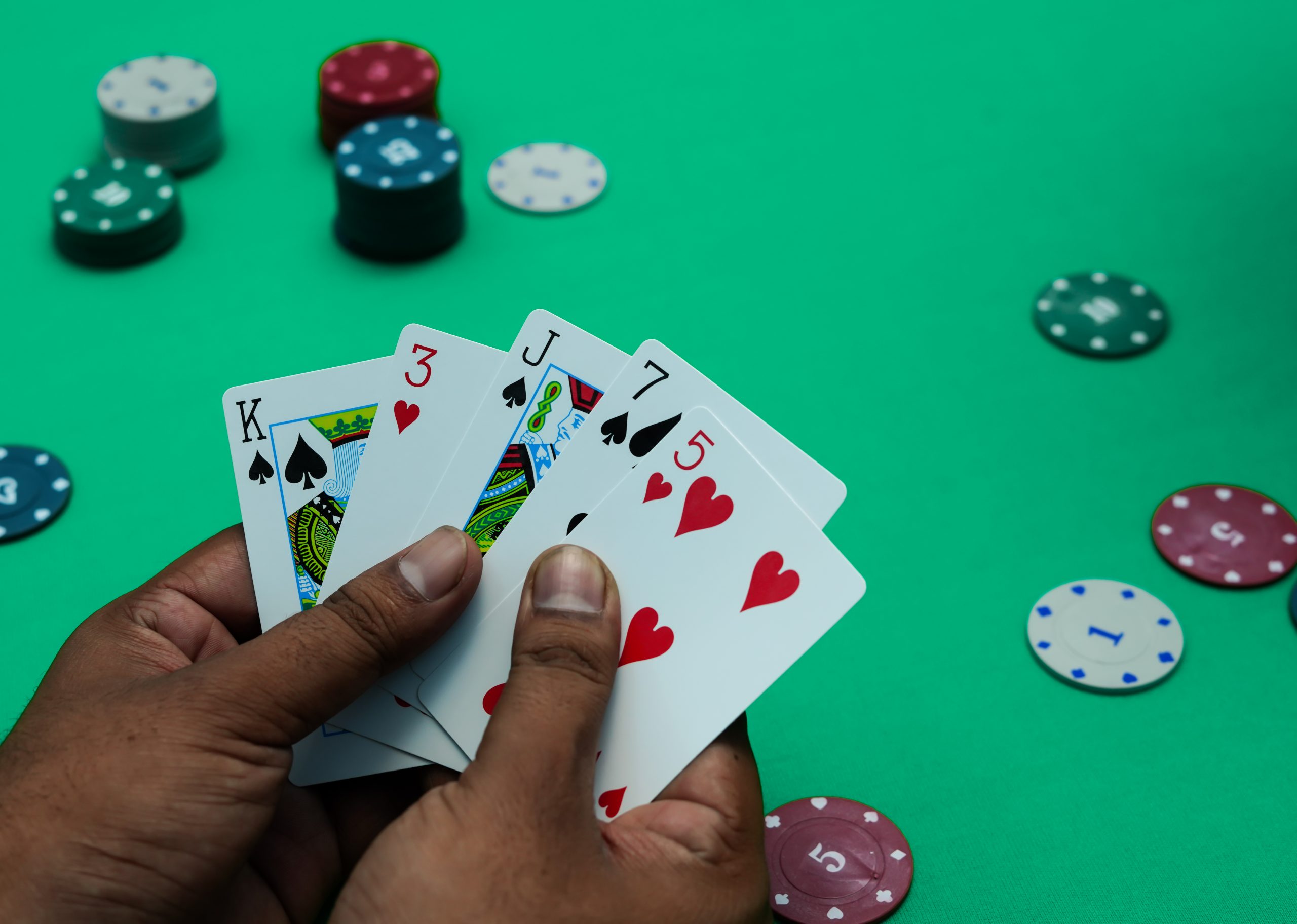How To Stop Panicking At The Poker Table
Posted: May 6, 2022
Updated: May 6, 2022
-
Learn to create and maintain your poker face!
-
Hide your Tells with our tips!
-
Check out our article about how to stop panicking at the poker table!

Poker is a game full of signs; you only have to learn how to read and hide them. Everyone has a Tell, which gives them away, so you better try your best to suppress those. You are not in danger playing online, but panicking is a universal feeling whether you sit at the poker table or behind a screen. When you are on the edge of losing money, especially if you have a family, it’s normal to be scared and make bad decisions. However, we will show you how to stop panicking at the poker table.
Telling Signs at the Poker Table
According to 888poker, there are two types of signs. One of them is involuntary telling. These are the little things people do when they think no one is watching or don’t know they do them. For example, putting your hand in front of your mouth is often a sign of having a weak hand, especially if the stakes are high. Then there are the conscious signs which are only for show. Every opponent tries to paint a story, and you have to decide whether you believe them or not. Suppressing panic is another story, though.
Most players try to prepare for anything and everything, except for how to stop panicking at the poker table. At the beginning of the poker party, the scene and players are totally different than well in the game or toward the end. First impressions matter a lot during the first few rounds, where the players have to see through each other. The way a player acts and dresses reveals a lot about them too. Another sign is how they keep touching and using their chips. If they are arranged carefully, they are most often refer to a predictable person who will probably not do anything irresponsible. Although if the chips are lying there carelessly, the player is more likely to take risks.
However, when things start to get out of hand and not as you have planned, people start to sweat, fidget, and full-blown panic sets in gradually. If you are in panic mode, there is no way your opponents won’t notice. Those who attempt bluffing will try their best to make it look as natural as possible, but when the stakes are high, your body will give off signs. You may even consider giving up, which will also show. There is no need to feel ashamed if this happens, it’s a reflex, but you can learn to stop panicking at the poker table!

How to Stop Panicking at the Poker Table
Not only your face but your posture and body language can tell a lot about how we feel. Watch yourself and pay attention to your every movement! How you behave every day and how when you get excited or in a stressful situation. The best idea might be to write down everything you can observe. How you hold your hands, your feet, what your posture looks, whether you have habits that you only have when you are nervous, etc.
For example, you twist your hair or pick your nails, look into the distance, blink more or not enough. Watch your voice too, and don’t forget to ask others. Sometimes an outsider sees more. In a tense situation, your muscles are stiff as well, so relax them, especially on your face. Don’t widen your eyes too much, squint or narrow your slits. Don’t look sideways, up, or down when you are thinking. Keep your gaze on the goal, and focus where you would normally. Blink, and breathe casually. Be aware of these automatisms.
If you have abnormal patterns of behavior and habits, you will be able to control yourself better and these automatisms also, but you will need to practice. The mirror is perfect for this, where you can make yourself aware of how you behave and then repeat the practiced elements in a situation. It’s weird to notice stuff about yourself that everybody can see, yet you had no idea about it! If you can manage not to pressure yourself, these things will come naturally.
Helpful Techniques
A lot of people believe, mistakenly, that emotions can not be controlled. They think emotions have an independent will, and instead of you controlling them, it works the other way around. According to some, emotions are uncontrollable mechanisms that come to the surface due to external influences. So emotions are nothing but evident reactions to the events of our lives. However, that’s not the whole truth. You can learn how to stop and control them. Emotion control techniques for crises are short-term. We use them only for a few minutes or hours. Distract your thoughts. You can also visualize! Symbolically put aside the problem for a while. For example, close it in a box, build a wall around it, etc.
If you are able to question the nature of our emotions, you are also able to reduce their extent! This will help you process and accept your feelings in a way that will have a positive impact on you. You can even turn your highly negative emotions to your advantage, so they can help you deal with different situations and make the right decisions. Identifying emotions is the first step in controlling them. As a result, their intensity can be reduced, and conclusions can be drawn that are fundamental to controlling your emotions. Also, finding the source of your reactions can serve as a wake-up and help how to stop panicking at the poker table.

How to Stop Panicking at the Poker Table
The next step is trusting that you are able to control your emotions. The best and easiest way is to search your memories for an experience similar to your current situation. Then recall the way out of that situation. You can prove to yourself that you are able to find a solution to anything, and you will see that you are also able to control your reactions consciously. Once you have been able to overcome a problem, you can do it over and over again. This is nothing more than a kind of action plan that you are able to prepare in advance and carry out.
So recalling an experience is the most effective tool in your hands. Make sure that you examine the most positive event possible. As you have to apply the best working action plan. It is crucial not to stand by but to find a solution to the problem and take immediate action. Actions always bring a breakthrough in correcting the problem, but inactivity only prolongs the situation. Make an action plan! If necessary, change your approach. If the solution worked once, it would work again. Thanks to your memories, you have a powerful weapon in your hands.
Being controlled by your emotions is not just a temporary state; it accompanies you throughout your life. However, thanks to experiences, everything you need to handle a situation is at your disposal. You have learned that you do not have to fight your emotions but accept them and put them on your side. As a poker player, the perfect game plan is not to give away anything. With these techniques, you will be able to handle your emotions and take immediate action when needed.
Tips
Emotions can affect the perception of events. We can see the situation from a completely different angle than it actually is. Emotions interfere with an objective and neutral assessment of the situation. So it is not easy to learn how to control them and not be influenced by the feelings of others or situations. Positive thoughts generate positive emotions, and negative thoughts will lead you down the rabbit hole.
The direction of your thoughts is to interpret what could happen and not necessarily what is happening. So, don’t listen to your first thoughts. Our brain is a filter through which we look at the world. This means that emotions always affect our reality. Remind yourself that thoughts and feelings don’t always reflect what’s really going on, and it definitely makes playing poker easier. Before you take any action, turn off your emotions, and think.

The part of the brain responsible for emotions is more powerful than the rational part, so when panic sets in, you can’t concentrate. So stop, come to terms with the feeling, and only then continue taking action when you feel present again. Basically, these are the main tips on how to stop panicking at the poker table. You only need to practice them! Look up pro poker players at online poker sites in the US and learn!
Summary on How to Stop Panicking at the Poker Table
Don’t forget that you are not your emotions. As mentioned earlier, thoughts lead to responses. If people or situations unbalance you, a way to learn to control yourself is to know your weaknesses and are conscious of them. Rate your reactions to certain events and when you reach seven on a scale of one to ten, from calm to panicked, use one of the techniques before acting or making a decision. For example, start counting or visualize something that has a calming effect on you! Playing online is different, so check out our article about online poker psychology!
Understanding why we react to a situation often helps reduce its impact on our feelings. By knowing the causes of strong emotions, you can learn to control yourself. For example, you may get upset if a player is late for a game, even though you understand there’s no reason to be angry. This is due to a negative experience in the past that has nothing to do with the current situation. If you understand your emotions, life will be calmer and more successful. Don’t forget a scared mind is a narrow mind! If you want to know how to stop panicking at the poker table, you have to work on your inside to avoid showing telling signs on the outside. Now that you know the solution to make thousands of dollars, try yourself at 888poker!
Click here to visit 888poker’s online poker tables












